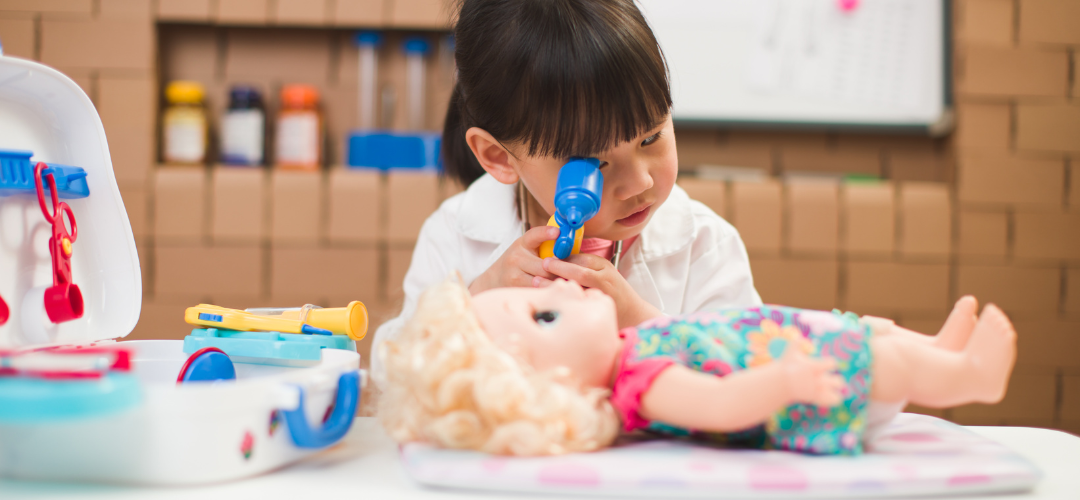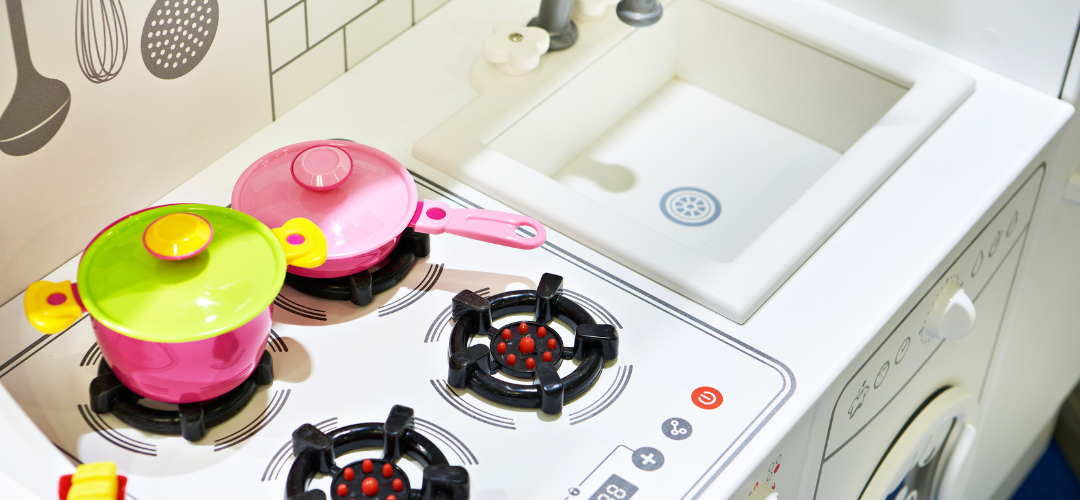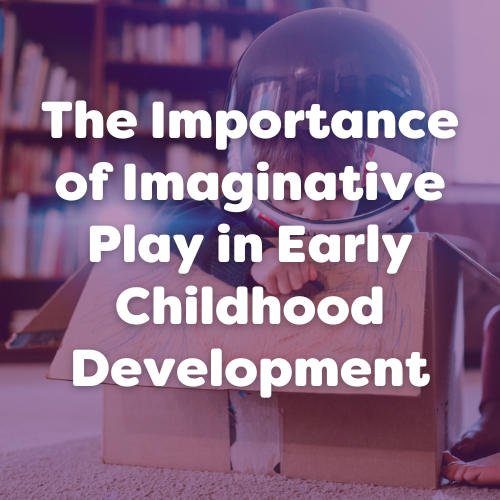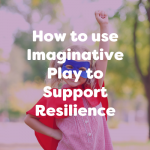What is Role Play?
Effective role play gives children the opportunity to try out risky ideas in a safe environment. It allows them to explore boundaries, make sense of the world and develop their own identities. Through pretend play, children are learning to understand the basic principles of society and how it functions, and the important rules and routines of everyday life. Imaginative play is vital because it allows children to revisit familiar and unfamiliar events, whilst also supporting the development of their imagination, through real and familiar, to complete fantasy.

Role play gives children the opportunity to:
- Develop confidence and self-esteem
- Show initiative
- Express their personality
- Develop communication and language skills
- Cultivate friendships
- Investigate real life situations
- Learn cooperation and develop teamwork skills
- Use their imagination
- Express themselves freely
- Develop decision making skills
Stages of Development in Early Years Imaginative Play
As with all areas of provision, we need to understand any patterns of child development that are likely to show themselves through children’s play and make sure that we have provision in place to support them.
- From 18 to 24 months, children will be engaged in simple pretend play. Everyday activities children, such as talking on the phone or using keys, will begin to be acted out. By the age of two, children will often show signs of symbolic thinking, for example, pushing a block of wood around the floor as a car.
- Between the ages of two and three, children’s symbolic thinking will become more complex, and they will engage in the sequential pretend play of familiar and unfamiliar events. Toys will play their part but younger toddlers need pretend objects to closely resemble the real item whereas older children don’t need the similarity and can create imaginary objects to support their play.
- By the age of three, skills are more developed and children are fully immersed in familiar role play scenarios. Now is the time for afternoon tea parties, visiting the doctors and going to the shops.
- Between four and five, role play is at its peak. Scenarios are more complex and play is more elaborate. Children can create scenarios with others, where they all have a different role to play, be it fantasy or reality, and verbal communication is about planning their play as well as an important communication tool. At this stage, children are beginning to collaborate and role play becomes personally, rather than object orientated.
How to Set Up a ‘Home Corner’ Role Play Area
To ‘role play’ anything, a child needs to know it well or be able to imagine it. An imaginative play space has to allow children to revisit the familiar, follow their interests and expand their imaginations.
Role play areas are an integral part of every early years setting. There should be no barriers to play, allowing children to investigate and act out their roles instantly. Having a varied range of props and materials is essential when creating a familiar, real home setting. You could include resources such as chairs, rugs, tables, place settings, telephones, toy wooden washing machines, utensils, wooden cleaning sets etc. Wooden kitchen role play units & role play sinks make a perfect starting point for a role play kitchen. They immediately issue an invitation to play as a new episode of ‘Masterchef of ‘Bake Off’ commences.

For inspiration and ideas for your role play area, have a read of our imaginative play activities blog or browse our extensive range of imaginative play resources and home corner accessories. Looking to learn about the benefits of role play? Check out our blog which covers the benefits of imaginative play.





